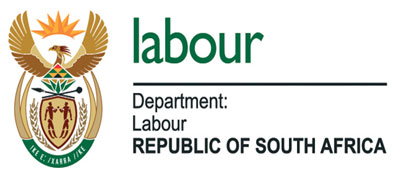Supported Employment Enterprises – ‘a key pillar in transitioning people with disability into the labour market’
Story supplied by the Department of Employment and Labour
The Supported Employment Enterprises (SEE) has the potential to employ 3 000 People with Disabilities (PwD) in their factories as they transition into the labour market.
SEE Chief Executive Sibusiso Phakathi said the entity was a key pillar in helping transition PwD into the labour market and is constantly looking at cementing partnerships and growing its sales.
SEE is an entity of the Department of Employment and Labour. Formerly known as Sheltered Employment Factories (SEF), the entity was established in 1943. The role of Supported Employment Enterprises is to create employment for persons with disabilities in the country by generating sales from the products manufactured and making a profit.
Phakathi was speaking during a workshop titled: ‘Transitioning from Education to Work for Persons with Disabilities.’ The workshop is part of the Education for Employability (E4E) programme supported by the European Union (EU).
He said the cost of employing PwD could amount to R275 million in the coming two years and they are looking to hire 150 people in the current financial year.
The entity is currently trading under service products. It has 13 factories across South Africa operating in eight of the nine provinces, with only Mpumalanga without a facility. The company manufactures office and school furniture, hospital clothes, safes, and gates.
E4E is a programme that was designed to find ways to ensure that youth have the skills to find or create meaningful and decent employment when they transition to the labour market. Three Departments implement the programme – the Department of Basic Education, the Department of Higher Education and Training, and the Department of Employment and Labour.
It intends to have the Departments collaborate to ensure youth receive the education and skills needed in today’s labour market.
E4E Team Leader Technical Assistance Andreas H Schott said the estimated 34,5 percent unemployment in South Africa was extremely high and with youth unemployment estimated at 63,9 percent, this was worrying. He said youth unemployment was a time bomb waiting to explode.
Schott said E4E was an initiative to support South African government efforts to improve education quality, vocational training and employability. He said the programme was another initiative to promote collaboration among different Departments.
“E4E’s efforts are geared towards supporting a coherent and integrated approach towards improving the youth-education-employment value chain,” Schott said.
The budget support funding for E4E pilots is R401 million. The programme supports six areas of co-operation across departments, including policy, dialogues, research, careers, pathways, public employment services, Presidential Youth Employment Initiative, visibility and advocacy.
Schott said the challenge ahead was daunting; however, there was a need to offer hope and assist, prepare and train the unemployed with skills for employability.


Comments are closed.